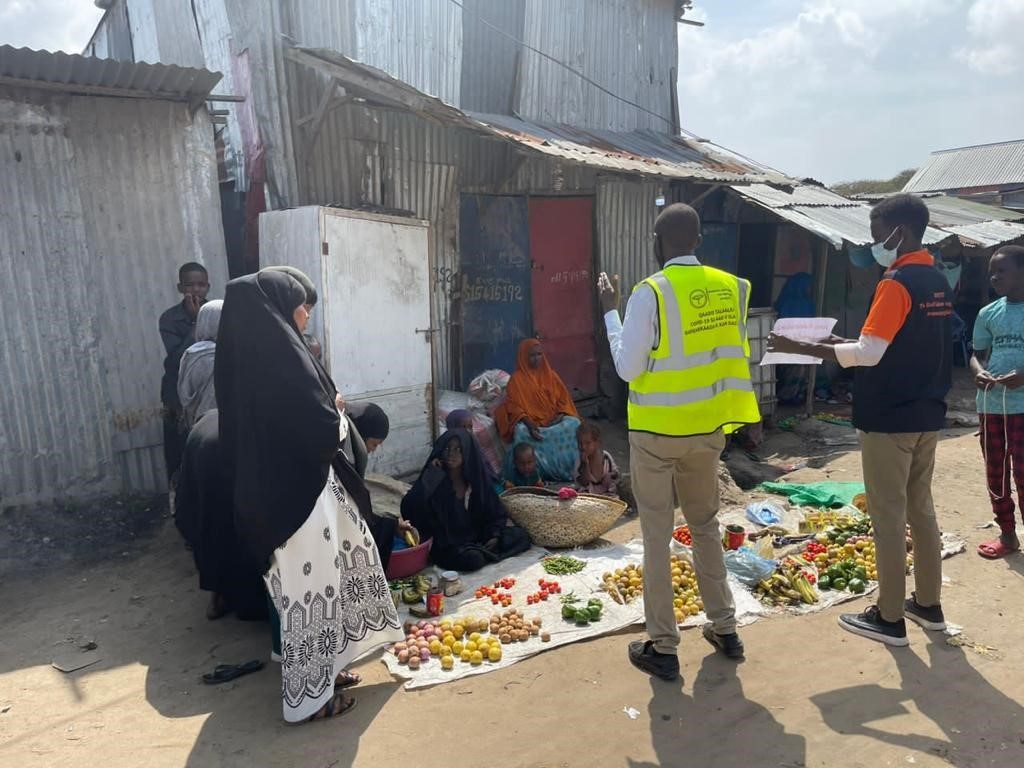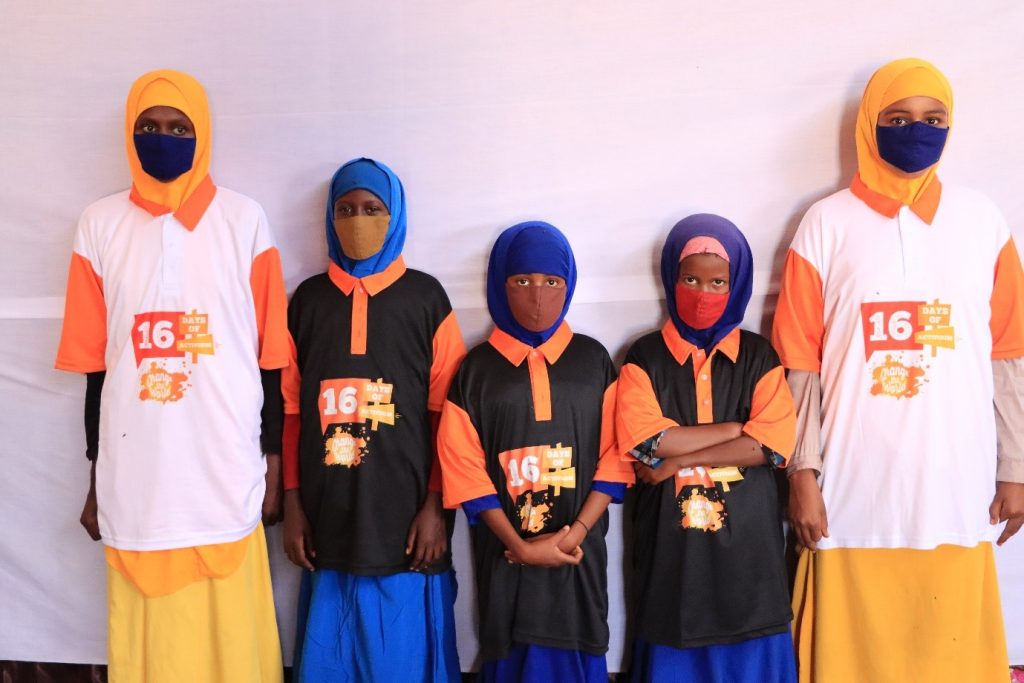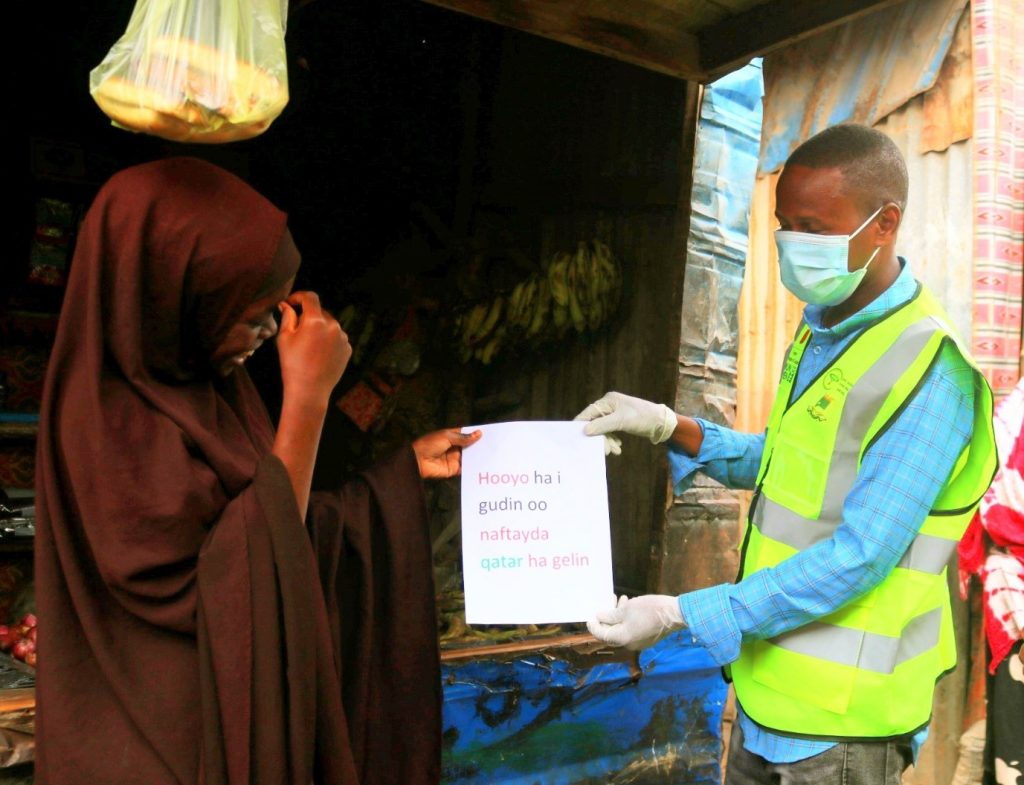November 25th, International Day for the Elimination of Violence Against Women, marks the commencement of the 16 days of Activism against Gender-Based Violence (GBV) which runs up to 10th December, the International Human Rights Day. The campaign is a period in which everyone is called upon to work together to end all forms of violence against women and girls and to dismantle the norms, behaviours and systems that sustain it. This year’s campaign theme was, “UNITE! Activism to end violence against women and girls”.
According to UNWOMEN, more than one in every three women will face gender-based violence during their lifetime. GBV has serious long-term consequences on women’s physical, sexual, reproductive, and mental health as well as on their economic, personal, and social well-being. Champions of GBV may also experience stigma and rejection from their community and family.
In the HoA, the COVID-19 pandemic, climate change, drought and overwhelming displacements are some of the factors contributing to an increase in GBV. GBV disproportionately impacts women and girls and affects their well-being in the crisis context.
According to UNICEF, the number of children at risk of dropping out of school due to the impact of these crises is increasing daily, leaving vast numbers of adolescent girls in greater danger of child abuse, including girls undergoing FGM and forced into marriage to help relieve their families of financial burdens.
Child marriage is a violation of human rights and a form of gender-based violence. Child brides have less access to sexual and reproductive information and services, increasing their risks of early pregnancies and sexually transmitted infections. Many do not continue with their education, which essentially affects their long-term social economic development, and efforts to address the inequality in society. Girls who get married early are also engaged in early childbearing which puts both the adolescent mother’s and baby’s lives at risk.
Raising Awareness to Communities on GBV against the most Vulnerable

This Year NAPAD in partnership with UNWOMEN with funding from the Government of Japan and with support from the Ministry of Health in Somalia has conducted 16 Days of Activism campaigns to raise awareness and inspire community-led action against gender-based violence in all its forms in the IDP settlements of Mogadishu, Kismayo, and Baidoa.

Community volunteers were trained and engaged in door-to-door households, schools, marketplaces, and water collection points in the IDP settlements of Mogadishu district (Kahda IDP, Garasbaley IDP and Deynile IDPs), Baidoa district ( Bilowka IDP, Kibraay IDP and Hagareey IDP ) and in Kismayo district ( Beder IDP, Farjanno IDP and Qoryooley IDP ). These locations have a poor record of social-economic justice for women, youth, people living with disabilities and other marginalized groups as well as are at a heightened risk of violation of the rights of vulnerable women, girls, and children.

The 16 Days of Activism are also meant to propel activism by each one of us as humans against GBV all year round. NAPAD is committed to continuously creating awareness and advocating for community-led protection and response to gender-based violence, which will improve the safety, access to justice and well-being of those affected and impacted.
